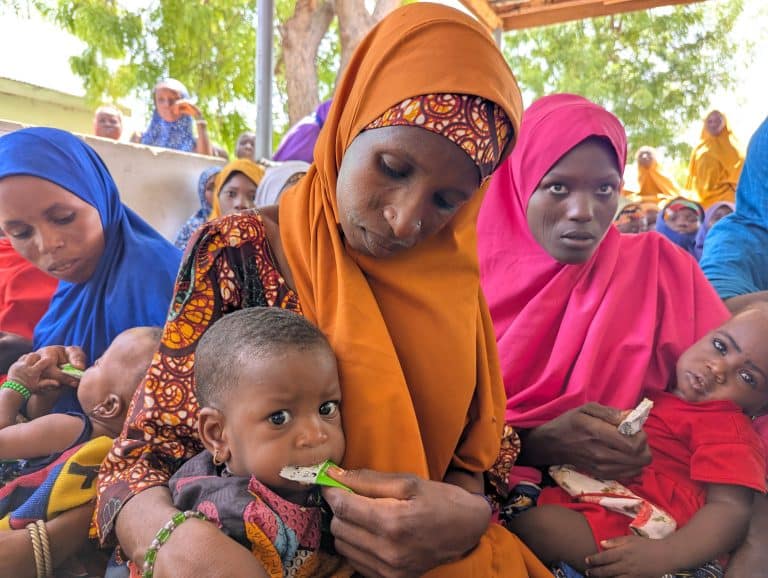The Alliance for International Medical Action (ALIMA), Handicap International (HI), and Première Urgence International (PUI) are raising concern of the renewed violence in Mweso and Kitchanga in the North Kivu province of Democratic Republic of the Congo (DRC) that began on October 20, 2023. These clashes have caused the displacement of some 198,976 people and seriously affected humanitarian access. The security situation is worrying for humanitarian workers and Congolese people (children, women, people with disabilities and the elderly). The two main consequences for humanitarian organizations working in the area are: increased security risks for aid workers and reduced access to at-risk populations to deliver necessary assistance. ALIMA, PUI, and HI call on all parties involved in this conflict to ensure the safety of the civilian population and to facilitate safe access for humanitarian workers.
The upsurge in violence has resulted in the displacement of thousands more people than in previous months, particularly in the Mweso and Kitchanga health districts, and more specifically in the towns of Tongo, Bwiza, Bukombo, Mweso, and Kitchanga. As of October 21, the Mweso health district counted over 100,000 new internally displaced persons (IDPs) who had fled the clashes over the previous weekend in the town of Kitchanga. The Rutshuru health district also had more than 30,000 new IDPs. These constant, forced movements exacerbate the health risks and safety of the displaced populations. There is a dramatic and growing need for shelter, health, and psychological support, sanitation, nutrition, and protection. Women and children are the main victims; they are particularly at risk of sexual abuse and violence. People with disabilities face difficulties in accessing basic services due to a number of barriers, including physical barriers, and in particular the lack of reasonable accommodation for accessibility, but also a lack of services adapted to their specific needs.
In this context, accessing populations to ensure humanitarian assistance is critical. However, several access routes (Mweso – Kitchanga – Goma) are currently blocked due to their proximity to the frontlines of the violence, and humanitarian teams are unable to deploy. As humanitarian needs continue to grow, the undersigned organizations pledge to coordinate effectively to respond as quickly as possible and call for the international rights of humanitarian workers and civilians to be respected.
ALIMA, HI, and PUI, call for the following:
- The establishment of a humanitarian corridor to Mweso and Rutshuru health districts to allow humanitarian workers safe access to at-risk populations
- Ensuring continuity of care and support services for internally displaced persons
- The implementation of a rapid, effective, and coordinated multisectoral humanitarian response for displaced populations
- The allocation of sufficient and flexible funding to meet the exponential needs of affected populations
- An end to the violence perpetrated by warring parties against civilians and shelters
SIGNATORIES :
- The Alliance for International Medical Action
- Handicap International
- Première Urgence International
For further information, please contact:
Heads of Missions or Advocacy Officers of non-profit organizations
ALIMA: cdm@rdc.alima.ngo
Handicap International: o.terzolo@hi.org
Première Urgence International: cdm@premiere-urgence-cod.org
Cover picture : © John Wessels / ALIMA





